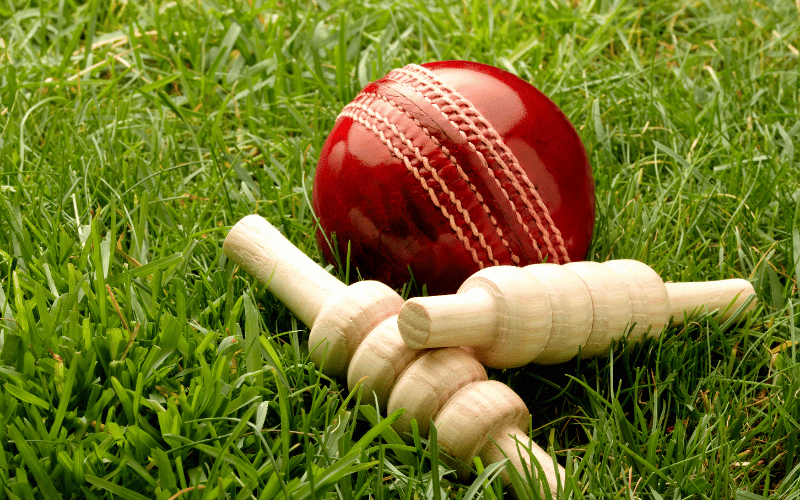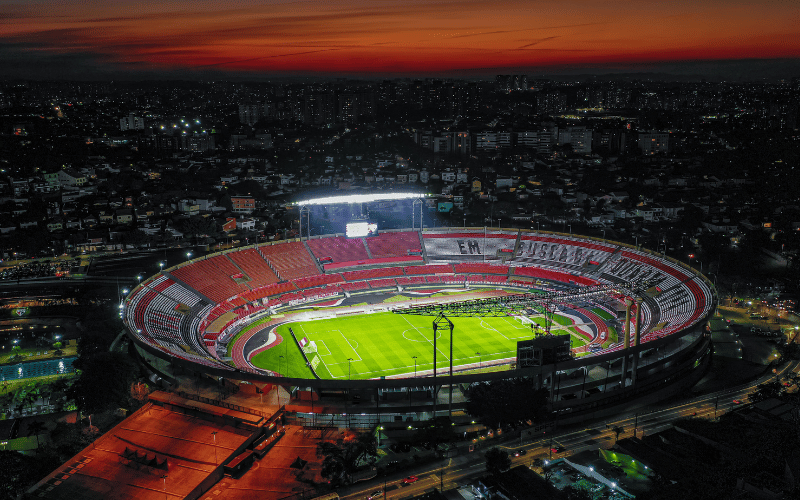The Indian Premier League (IPL) 2025 had an unparalleled suspension after a spike in hostilities between India and Pakistan culminated into a historic moment in the tournament’s history. This obstruction did not only impact the cricketing calendar but had far reaching implications to players fans of the game and the sporting community at large.
Background: The Suspension of IPL 2025
The IPL was halted for a while on the 8th of May 2025 after there was an increase in military conflict between India and Pakistan. The situation escalated to the point when the match in Dharamsala was declared off because of power failure, and the other one had to be shifted due to security issues. The safety of the players and the spectators became a priority and the decision of suspending the tour was taken.
Impact on Players and Teams
The sudden termination had an instant impact on the teams and the players. Some foreign players, fearing for their lives, decided to move out of India. Australian women’s cricket captain Alyssa Healy narrated about an ordeal in Dharamsala, where missile raids were nearby, which caused chaos during the evacuation, and they finally reached a functioning airport after 12 hrs journey.
In spite of the hurdles faced, there were some players and staff who made a decision to remain in India, and this was led by prominent figures such as Ricky Ponting. Cricket Australia stressed the autonomy of the players in terms of their return which stressed the psychological toll and choice as key in such circumstances.
Resumption of the Tournament
After the Raghileil ceasefire treaty was signed between India and Pakistan after diplomatic intervention consisting of the U.S., the BCCI declared the return of IPL from May 17, 2025. The rest 17 matches, which comprise the 12 group matches and playoffs, are slated to be hosted in six Indian cities. Bengaluru, Jaipur, Delhi, Lucknow, Mumbai, and Ahmedabad. The final is scheduled for the 3rd of June 2025.
The revised schedule, however, interferes with the international cricket calendar, which may make the players unavailable for national team games.
Policy Changes and Regulations
Coming in the wake of the suspension and its reversal, the BCCI made a number of policy changes. Notably, the ban that restricted the usage of saliva to shine the ball, which was introduced as a result of COVID-19 pandemic, was lifted after the majority of team captains agreed to the proposal. This decision denoted the IPL as the first significant cricket tournament to resume the practice after the pandemic.
Additionally, the BCCI, upon the order by the Ministry of Health, chose to prohibit all kinds of tobacco, alcohol and crypto advertorials (even in the form of surrogates) under IPL 2025. This step corresponds with public health concerns and indicates a social responsibility strategy of the league.
Fan Reactions and Public Sentiment
Fans showed a combination of disappointment and understanding when the IPL was suspended. Although the interruption had disrupted the cricketing seasons, many people admitted that it was important to focus on safety. The announcement of the resumption of the tournament was well received with excitement coming back to the cricketing world.
The delay in the IPL 2025 caused by geo-political grumblings brought the complex connection between sports and major events into focus. The league’s strength and flexibility in overcoming these problems, making the appropriate policy changes, and resuming play indicate its strength and flexibility. As the tournament continues, it bears witness to the strength of unity that sports possess and the survivability of cricket.
Will the IPL Resume in Full? Challenges and Outlook
Notwithstanding the May 17 resumption announcement of IPL 2025 after a shaky cease-fire between India and Pakistan, certain questions are still hanging there: Will the IPL have a full schedule? Is safety possible for players, fans and venues?
The short answer is: yes, but with conditions. The BCCI has restored confidence by assuring the continuation of the tournament, and the teams have been back to training camps with stricter security measures. However, the resumption is tenuous and very reliant on the stability of the geopolitical context and the continuing diplomatic dealings between India and Pakistan.
Security is Paramount
Security remains the foremost concern. In such cases as the Dharamsala incident, when players felt proximity to missile attacks, the risks were underlined. The Indian Government and BCCI have responded by increasing levels of central forces, collaborating with state governments, and instituting no-fly zones and restricted areas around parks and stadiums. However, military experts warn that cross-border tensions can rekindle themselves with little notice, even putting matches at risk, particularly those to be held in northern areas.
More, the BCCI is further said to be liaising with the intelligence agencies and foreign embassies to provide the team management with real time threat assessment. These security briefings will affect player availability especially foreign players whereby some may still make a decision to opt out basing on insurance issues or pressure from the home boards.

Broadcast and Sponsorship Woes
Another complexity is the commercial factor. Several international broadcasters and advertisers suspended their campaigns during the suspension. While the league is being restarted, viewership metrics, sponsorship activation deadlines, and media plans are down. Interestingly, advertisers in the crypto and alcohol business were banned after a health ministry decree, which eliminated a good portion of IPL’s traditional revenue stream.
Whereas, brands such as Dream11, Tata and Paytm remain to sponsor the league, their promotional techniques shift towards safety awareness and resilience stories from a traditional product promotion. The uncertainty has also given people pause on ticket sales in some cities where fans remain apprehensive in gathering in large numbers due to remaining concerns over security.
Player Fatigue and Scheduling Overlap
While the teams prepare for a restart, the calendar finds another challenge. The IPL restart is at a time when bilateral matches involving top cricketing countries are on. For example, Australia and England will also start the summer series in June, and thus, players like Pat Cummins, Jos Buttler, and Sam Curran might have to leave early, and the teams like KKR and RR will have to restructure their playing XIs.
To that end, the BCCI is considering the avenue of permitting squad changes on the basis of teams’ ability to explain the absence based on national duty. After all, this will affect team chemistry and the plan in a vital playoff series.
Long-Term Lessons: Contingency Planning and Crisis Management
Come what may, IPL 2025 being either completed or interrupted further, the league has already entered a different mode that no longer has crisis preparedness as an alternative. BCCI is supposed to develop a Disaster Response and Contingency Task Force comprising representatives from the Home Ministry, the Ministry of External Affairs, and the Defense to evaluate threats in the future.
Furthermore, the franchise owners are campaigning for the establishment of a neutral backup venue, most probably in the UAE, to which future matches could be easily moved in case of national emergencies as applied successfully in 2020 during the COVID-19 pandemic.
With the IPL 2025 tour poised to begin, its continuity rests on a fragile state of diplomacy, security, and there will be a need for logistical masterstrokes. The spirit of cricket has a strong resilience, but now the league’s continuation is also conditioned by the way India copes with the unpredictability of its external environment. For the moment, though, the fans can breathe a sigh of relief; however, having an eye on the tournament, in a literal and figurative sense, is the way it will continue.
Local Economy and Vendor Disruption
Besides big sponsors and broadcasters, the IPL ecosystem supports thousands of local vendors, cab drivers, food stalls, stadium workers, and freelancers. Sudden stoppage of matches created huge disruptions in such cities as Mohali/Dharamsala, whose economies are predominantly based on tourism and match day footfall.
Days after the abandoned match, hotel bookings in Dharamsala had declined by almost 60 percent. The local artisans, who normally peddle team merchandise around stadiums, also lost immeasurably. While bigger sponsors had insurance to protect them, smaller businesses were caught on the lurch.
The government of Himachal Pradesh has made a promise of a limited economic relief package for vendors affected by the IPL disruption. There is, however,,r a growing voice for the BCCI to establish a community relief fund which will pay stakeholders other than teams and players.
Fan Activism and Online Campaigns
One of the most interesting developments during the suspension was an emergence of fan led online activism. Hashtags, such as #BringBackIPL and #CricketForPeace, went viral on X (formerly Twitter) for days. These were not just expressions of disappointment but a request for diplomacy and unity, soliciting governments to keep sports untouched in geopolitical tension.
Some fans even went ahead to hold candlelight vigils in front of closed stadiums not only in support of cricket but also protesting against the heightening of violence that disrupted life. This grassroots agenda demonstrated the deep roots of IPL in the psyche of society in India.














